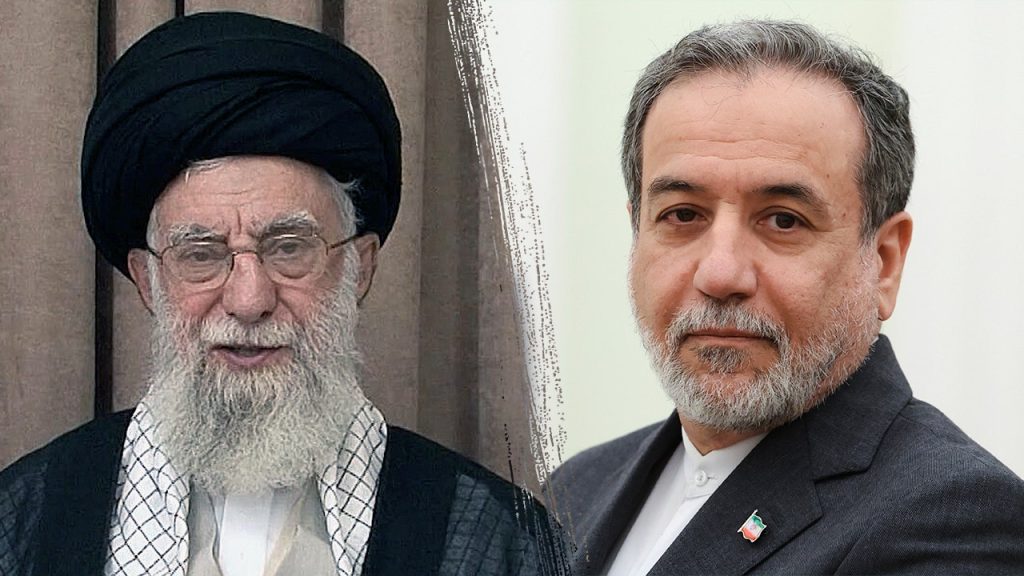In a recent escalation of rhetoric, Iranian Foreign Minister Abbas Araghchi issued a stark warning to President Donald Trump, urging him to adopt a more respectful tone towards Iran’s Supreme Leader, Ayatollah Ali Khamenei, or face dire consequences. This admonition comes just days after U.S. airstrikes targeted key Iranian nuclear facilities, deepening tensions in the already volatile relationship between Iran and the U.S. Araghchi’s comments reflect ongoing frustrations within Tehran following a military confrontation with Israel, highlighting the complexities of international diplomacy involving the two nations.
| Article Subheadings |
|---|
| 1) Warning from Iran’s Foreign Minister |
| 2) Context of U.S.-Iran Tensions |
| 3) The Impact of Recent Military Actions |
| 4) Reactions from U.S. Leadership |
| 5) Future Diplomatic Considerations |
Warning from Iran’s Foreign Minister
In a blunt message posted on X, Abbas Araghchi expressed his discontent with President Trump’s hostile rhetoric aimed at Iran’s leadership. He asserted that if Trump truly desires a diplomatic resolution, he must cease the “disrespectful and unacceptable” language directed at Khamenei. This warning underscores the delicate nature of diplomatic relations, where even minor provocations can escalate tensions significantly. The tone of such communications plays a crucial role in shaping international dialogues and can either open doors to negotiations or further entrench adversarial positions.
Context of U.S.-Iran Tensions
The relationship between the United States and Iran has been fraught with animosity for decades, often marked by conflict, sanctions, and military confrontations. The recent conflict between Iran and Israel is a reflection of this long-standing tension, exacerbated by U.S. involvement in the region. Notably, the war, which concluded under a U.S.-brokered ceasefire, revealed the vulnerability of regional players like Israel, as Iranian military capabilities continued to be a focal point of concern. Khamenei’s bold claims of victory after the conflict signify that Tehran is keen to showcase its strength and resilience against perceived threats from both Israel and the United States.
The Impact of Recent Military Actions
The U.S. airstrikes on Iranian nuclear sites—including Fordow, Natanz, and Isfahan—have not only damaged critical infrastructure but have also sparked outrage within Iran, prompting sharp responses from top officials. Following these strikes, Khamenei characterized the situation in a way that painted Iran’s resistance as a triumph. He stated that Tehran had successfully “slapped” Washington, which foreshadows a potentially dangerous path of retaliation. The aftermath of these military actions is likely to influence future interactions between the U.S. and Iran, further complicating the already intricate landscape of Middle Eastern politics.
Reactions from U.S. Leadership
In response to the escalating situation, President Trump dismissed Khamenei’s claims of victory, labeling them as “foolish.” He also took a step further by indicating that any discussions regarding the easing of sanctions on Iran would be put on hold. This hardline approach contrasts sharply with earlier narratives suggesting that diplomatic efforts might resume. Trump has publicly emphasized his role in preventing the assassination of Khamenei during the conflict, which he portrayed as a restraint on military action, indicating a complex interplay of aggression and diplomacy in U.S.-Iran relations.
Future Diplomatic Considerations
Looking ahead, the diplomatic landscape appears increasingly uncertain. Abbas Araghchi has firmly rejected claims of forthcoming negotiations with U.S. officials and emphasized that any discussions would align strictly with Iran’s national interests. This stance signals a cautious approach from Tehran, likely driven by recent military confrontations and the perceived need for stronger security guarantees. As both nations navigate this fraught terrain, the potential for conflict remains high, and the chances for diplomatic engagement appear slim unless there is a significant shift in rhetoric or policy from the U.S.
| No. | Key Points |
|---|---|
| 1 | Iranian Foreign Minister Abbas Araghchi warned President Trump to adopt a respectful tone towards Khamenei. |
| 2 | Tensions between the U.S. and Iran have a long history, including recent military actions and conflicts. |
| 3 | U.S. airstrikes on Iranian nuclear sites have heightened hostilities and drawn ire from Iranian officials. |
| 4 | Trump dismissed Iranian claims of victory, indicating a continued aggressive stance towards Iran. |
| 5 | Diplomatic relations remain strained, with Iran rejecting any imminent negotiations with the U.S. |
Summary
The ongoing tensions between Iran and the U.S. are now accentuated by public warnings and military actions that promise to complicate future engagement. As Iranian leaders like Abbas Araghchi and Khamenei respond firmly to perceived threats, the potential for further escalation exists. Conversely, Trump remains steadfast in his approach, emphasizing toughness while downplaying Iranian assertions of success. The interplay of threats, military action, and diplomatic communication will significantly define the trajectory of U.S.-Iran relations in the weeks to come.
Frequently Asked Questions
Question: What are the recent developments in U.S.-Iran relations?
The recent developments involve sharp exchanges between Iranian officials and President Trump, particularly following U.S. airstrikes on key Iranian nuclear sites. Iranian officials have called for respect, while Trump has dismissed Iranian claims of victory.
Question: How has Iran responded to the U.S. military actions?
Iran has condemned the U.S. airstrikes, with officials asserting that these actions only reinforce their resolve and demonstrate their military capabilities. There have been threats of retaliation should further actions be taken against Iran.
Question: What does Iran’s Foreign Minister say about negotiations with the U.S.?
Abbas Araghchi has firmly stated that there are no current negotiations with the U.S. and that Iran will act according to its national interests, indicating a reluctance to engage in talks under the present circumstances.


